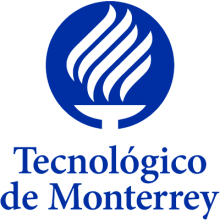While the world has become captivated by a “myth about Silicon Valley”, a forum has heard that the greatest advancements in the human condition come from incremental innovations rather than blockbuster breakthroughs.
Dan Breznitz, Munk chair of innovation studies at the University of Toronto, stressed the distinction between “inventions” such as the mRNA vaccine and the creative steps needed for their real-world application. “The pandemic will not be conquered, so to speak, unless we put that invention into use,” Professor Breznitz told the Times Higher Education Innovation and Impact Summit, held online.
“We have to somehow not just create a vaccine but produce 10 to 15 billion units of that vaccine and implement it to human beings. That’s a whole new set of innovations that we have not even talked about.”
He said that while the Pfizer, Moderna and AstraZeneca vaccines had generated plenty of excitement, comparatively little attention had been paid to what came next. “You have to develop special vials in order to produce them; you have to rapidly scale up production; you have to solve a problem of distribution; you have to solve a problem of refrigeration,” he said.
“All of that is part of innovation process. Innovation is from invention to actualisation in society, and constant improvement. Without constant improvement we would not have the ability to have this summit right now, because the computer would still fill three or four very big rooms and the internet would maybe be able to deliver one email per hour.”
Professor Breznitz was part of a panel discussion debating how innovation should be steered, and by whom. He said the obsession with new technologies had fuelled a misplaced faith in invention precincts like Silicon Valley, Tel Aviv and Boston.
In a scathing assessment, he criticised the “rapid growing inequality” in places such as Silicon Valley, which had shifted from its initial promise of “good jobs and prosperity for all” to leave 85 per cent of the population on a “treadmill to nowhere”.
Technology workers in Silicon Valley were Stanford and Berkeley graduates – “the people that society shouldn’t really worry about because they’re already very well off with very high skills” – attracting “wonderful wages” and the “lottery ticket” of stock options in start-up companies. Meanwhile, those around them worked as cleaners and slept in their cars.
In Israel, where another “economic miracle” was focused on Tel Aviv, every fifth household was now under the poverty line. “Is that the innovation model you want [for] your own society?” Professor Breznitz asked.
“The world has spent billions of dollars trying to imitate Silicon Valley, with almost zero success, and if you become a Silicon Valley, what you give your own society is massive inequality.”
He said the world should instead look for inspiration from Taiwan and Finland, where “follow up” innovation had generated widespread prosperity. “Think about where you [can] excel – novelty, design, prototyping, assembly – and focus your innovation, including universities, around that.”
Christine Loh, chief development strategist at the Hong Kong University of Science and Technology, said the response to the pandemic had underlined government’s role in innovation. But she said China, unlike some other nations, was a country that “believes in big government. We can’t have one narrative to say that’s how it works, or that’s how it should work,” she told the summit.
Monterrey Institute of Technology president David Garza said no “single entity” was best placed to steer innovation. The THE event is being held in partnership with the University of Auckland and Pennsylvania State University.
Register to continue
Why register?
- Registration is free and only takes a moment
- Once registered, you can read 3 articles a month
- Sign up for our newsletter
Subscribe
Or subscribe for unlimited access to:
- Unlimited access to news, views, insights & reviews
- Digital editions
- Digital access to THE’s university and college rankings analysis
Already registered or a current subscriber?













